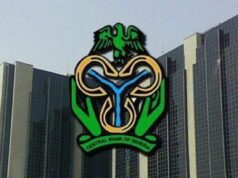IMO, JANUARY 25, 2017 – OWERRI, the Imo State capital, played host to members of the Imo/Abia states Branch of the Manufacturers Association of Nigeria, MAN. They were in Owerri to appraise their operating environment in the passing year. Governor Rochas Okorocha also appraised the passing year when he delivered the 2017 budget speech, to the State House of Assembly.
To borrow the words of Governor Okorocha, “the year 2016, presented some of the most difficult social and economic challenges that Nigeria had experienced in recent times”. Flagging off the event, the MAN President, Dr. Frank S. U. Jacobs, lamented that “the economic situation in the country is worrisome and calls for greater synergy between the government and MAN, in order to pull the economy out of recession”.
He reminded the government that the manufacturing sector remains the most viable ally of government in this regard, as it creates wealth, generates employment and engenders skill acquisition, among other things. “We are all familiar with the challenges the manufacturing sector is passing through and which the theme, survival of manufacturing in a depressed economy, points to”, Jacobs said.
MAN President, Dr. Frank S. U. Jacobs (in red cap), flanked by Dr. Choke Obidigbo, Engr. (Mrs.) Afaoma Ubani, Mrs. Ekama Akpan, Chief Geoffrey Ekenma and Mr. Romanus N. J. Anyanwu.
The MAN president recalled that the Association has been canvassing for resource-based industrialisation policy for some time now, adding that “this would help to reduce the demand for forex to import essential raw materials for production”, which has been a major challenge in recent times.
Incentives for investors
He recalled that not too long ago, Imo and Abia states, had a lot of natural resources that served as raw materials for manufacturing industries, adding that “because of some unfortunate developments, most of these resources have disappeared or have been neglected”.
Jacobs appealed to government to create attractive incentives for investors, that would engage in the processing of the abundant agricultural and mineral resources, from primary produce to secondary or intermediate products.
“Government has to look for viable options of making forex available for manufacturers as we must remain in production and given the fact that production of local raw materials, apart from those that are currently available, would take some time”, Dr. Jacobs said.
Continuing, the MAN President said the times were not only challenging but that the economic recession had made quite a number of the sectors to be recording lower capacity utilization and profitability, and even rightsizing their personnel profile in order to remain in business.
Welcoming the participants earlier, the Imo/Abia MAN chairman, Mr. Romanus N. J. Anyanwu said: “The performance of the manufacturing sector in the past one year has not been rosy, as it was largely constrained by the harsh economic environment”.
Anyanwu explained that the ugly situation “is evidenced in low capacity utilization of most of our member-companies, the problem of power outages, lack of patronage of locally manufactured goods by the citizens and state governments, high input cost occasioned by ever increasing foreign exchange rate, little concern and continued neglect of investments in other sectors of the economy apart from oil and gas”.
It was the considered opinion of Anyanwu that these difficult situations were by no means exhaustive, but he stressed that they have continued to limit the potentials of the sector, which has continued to face enormous challenges.
He identified ever increasing input cost occasioned by the inaccessibility of foreign exchange for raw materials and spares, multiple taxes and levies by all tiers of government, fake and substandard imported products, militarized form of collecting taxes by the various governments and agencies.
Anyanwu similarly, complained about high cost of funds and inadequate long term loans to support the Nigerian manufacturers, as well as inadequate electricity power supply and exploitation of members through outrageous estimated bills.
“With the above stated challenges, the cost of production of the average Nigerian manufacturer is relatively higher than others in most parts of the world.
Harsh operating environment
Due to harsh operating environment, members are closing shops, with job losses and attendant social consequences for the society”, Anyanwu said.
On the way forward, Anyanwu recommended that all tiers of government should support the local industries from foreign competition by encouraging patronage of locally manufactured products.
“This policy should be an enforced deliberate policy of government in all its agencies that locally produced goods are patronized to promote the growth of of the local industry”, Anyanwu said.
He then reminded Imo and Abia State governments that they can hardly create the job need of all citizens, “rather, creating enabling environment will spring up industries which will create jobs for the citizens”.









